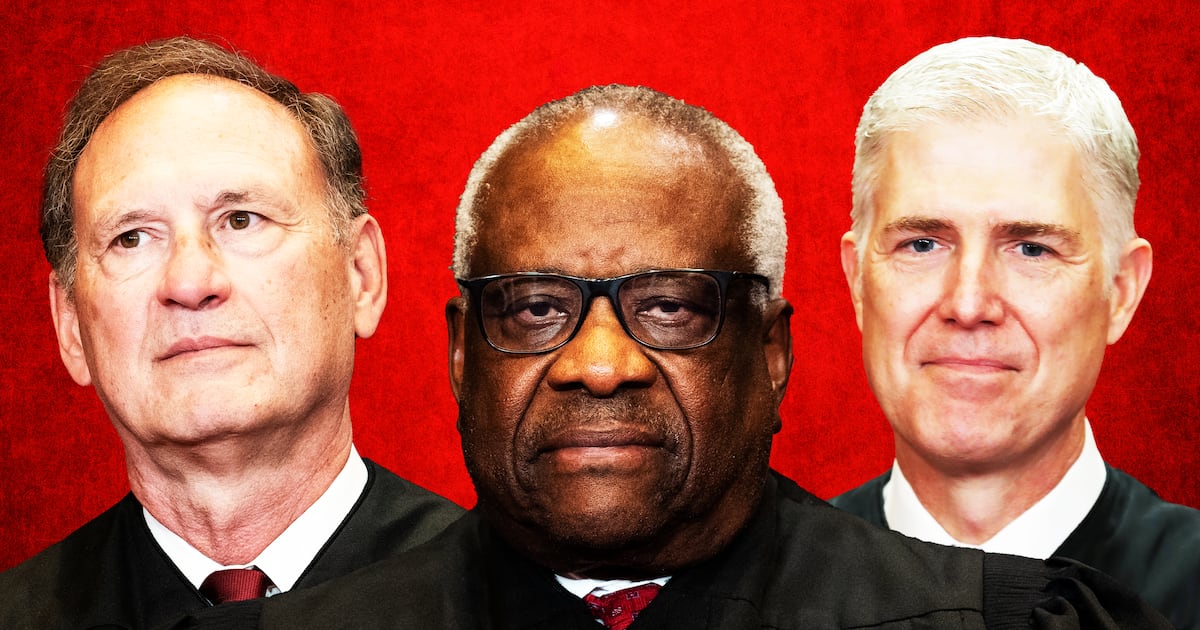Is there a moral component to the free enterprise system? Should advocates of capitalism take into account such abstract notions as happiness and the flourishing of the human spirit? These and other philosophical themes will be explored Thursday at the American Enterprise Institute in collaboration with the unlikeliest of partners, drum roll please: the Dalai Llama, who 30 years ago co-founded the Mind & Life Institute to study the caring and contemplative sciences, the kind of organization economic conservatives are more likely to mock than emulate.
His Holiness, as he is typically referred to, will be an active participant, engaging with each panelist after they make their presentation, offering his ideas and posing questions in the role of an interlocutor. “The whole idea is to get him in action because he’s such an interesting person. If you just sit and talk to him that’s not much fun,” says Arthur Zajonc, professor of physics at Amherst College and president of the Mind & Life Institute.
Most people would find any interaction with such an iconic figure pretty exciting, and last year, AEI President Arthur Brooks was one of them. He traveled to meet with the Dalai Lama in India, where he lives in exile. Without knowing exactly what they talked about, Zajonc says he applauds Brooks’ apparent goal, which is “trying to remake the image of the conservative Republican Party in a way that is more humane and speaks to the question of human happiness and flourishing.”
ADVERTISEMENT
While assembling a panel of discussants at AEI, the altar of conservative economics, is not something that the Mind & Life Institute would normally seek out, Zajonc says, “It’s a wonderful opportunity to meet those that are not just part of the choir.” (The Dalai Lama is scheduled to meet with President Obama on Friday at the White House.)
In the invitation email from AEI, Brooks describes the purpose of the unusual pairing for this event, stating that the free enterprise system is “under immense strain.” He doesn’t single out any particular issues, but in an election year where the policymakers and the politicians agree that growing income inequality is unsustainable, the intellectuals at AEI recognize the voters deserve more than kneejerk reactions from the right. “We must stop considering free enterprise purely in terms of economic gain and wealth creation and begin considering it in terms of human fulfillment,” Brooks writes.
The first panel of experts includes Glenn Hubbard, a supply-side economist and architect of the Bush tax cuts, which disproportionately benefited top income earners. It will be fascinating to see how much the Dalai Lama pushes back to get the panel of economists and academics to broaden their lens beyond material terms.
A second panel includes neuroscientist, Richard Davidson, a longtime friend and follower of the Dalai Lama, and Dr. C. Otto Scharmer from MIT, a founding chair of the Presencing Institute. Scharmer introduced the concept of presencing, which means learning from the emerging future, in a best-selling book. He also practices it by bringing transcendental techniques into the boardroom to create the mental environment to generate ideas.
Diana Chapman Walsh, former President of Wellesley, rounds out the panel, along with Zajonc, who in a telephone interview Tuesday promised the event would be “fascinating.”
Asked to elaborate, he says the panel will present “a more liberal science-based perspective” that will speak to the question of human happiness and flourishing. He says happiness is generally thought of in material terms, whereas flourishing is about “enhancing the meaning, purpose, value and direction in our lives.” He points out that the Dalai Lama often talks about his two sides: his spiritual side, which is Tibetan Buddhism, and his philosophic side, “the values that we hold, human flourishing and the flourishing of the planet. The environment is a deep concern of his.”
Climate change has taken on such ideological fervor with one side seeing it as an existential threat, the other denying its existence and calling it a hoax. Zajonc makes it clear where he stands. As a scientist, he says the case is clear that climate change is a real threat. “Now it’s a social and political argument,” he says. “Debating the facts should be over.”
The economy is the focus of Thursday’s event, not the environment, but the Dalai Lama can steer the conversation wherever he wants. He has become a moral voice for humanity, and the fact that the folks at AEI think they can learn something from him signals a willingness, however tentative, to try some new approaches. Thursday’s event is like a coming together of the left and right brain in addressing a problem. It’s just the sort of odd coupling we need more of in Washington.






